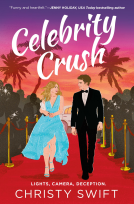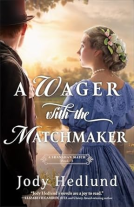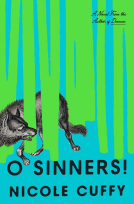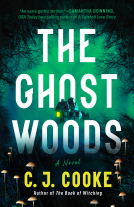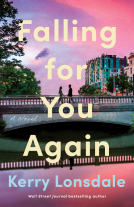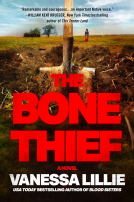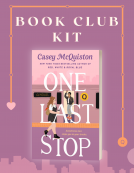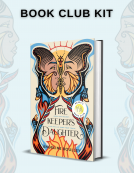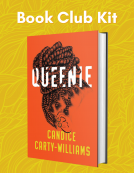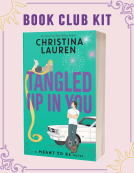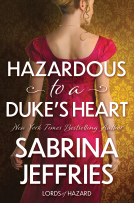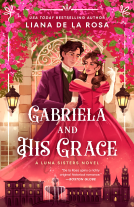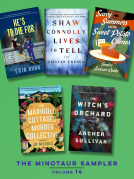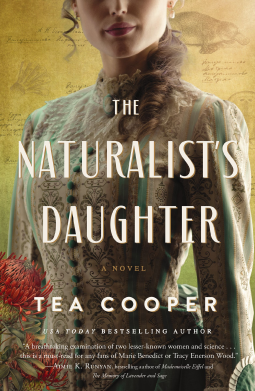
The Naturalist's Daughter
A Novel
by Tea Cooper
This title was previously available on NetGalley and is now archived.
Send NetGalley books directly to your Kindle or Kindle app
1
To read on a Kindle or Kindle app, please add kindle@netgalley.com as an approved email address to receive files in your Amazon account. Click here for step-by-step instructions.
2
Also find your Kindle email address within your Amazon account, and enter it here.
Pub Date Aug 20 2024 | Archive Date Sep 20 2024
HarperCollins Focus | Harper Muse
Talking about this book? Use #TheNaturalistsDaughter #NetGalley. More hashtag tips!
Description
Two fearless women--living a century apart--find themselves entangled in the mystery surrounding the biggest scientific controversy of the nineteenth century: the classification of the platypus.
1808 Agnes Banks, NSW
Rose Winton wants nothing more than to work with her father, eminent naturalist Charles Winton, on his groundbreaking study of the platypus. Not only does she love him with all her heart but the discoveries they have made could turn the scientific world on its head. When Charles is unable to make the long sea journey to present his findings to the prestigious Royal Society in England, Rose must venture forth in his stead. What she discovers will forever alter the course of scientific history.
1908 Sydney, NSW
Tamsin Alleyn has been given a mission: travel to the Hunter Valley and retrieve an old sketchbook of debatable value, gifted to the Public Library by a recluse. But when she gets there, she finds there is more to the book than meets the eye, and more than one interested party. Shaw Everdene, a young antiquarian bookseller and lawyer, seems to have his own agenda when it comes to the book. Determined to uncover the book's true origin, Tamsin agrees to join forces with him.
The deeper they delve, the more intricate the mystery of the book's authorship becomes. As the lives of two women a century apart converge, discoveries emerge from the past with far-reaching consequences in this riveting tale of courage and discovery.
Available Editions
| EDITION | Other Format |
| ISBN | 9781400344710 |
| PRICE | $18.99 (USD) |
| PAGES | 368 |
Available on NetGalley
Featured Reviews
 Catey C, Reviewer
Catey C, Reviewer
I loved this book. It is a very unique historical fiction book. The plot was very interesting and I loved the hint of romance.
 Mary H, Reviewer
Mary H, Reviewer
5 stars
What an excellent story. A woman sends a letter to the Library asking them to accept a set of nature notes. Tamsin is sent to collect the book. On the way she meets a solicitor/bibliophile who is representing the daughter of the lady. Mrs Rushworth is demanding the notes are authenticated and then sold so she can have the money. Tamsin is angry and then starts to learn about the author of the book. The other chapters are the story of Rose who is the Naturalists daughter of his heart and when he is injured by the platypus has to take the notes to England to give them to the Botanical society. There's lots of coincidental links which I think is a function of this author's work but I do like her writing.
I voluntarily read and reviewed an advanced copy of this book. All thoughts and opinions are my own.
 Kelly B, Reviewer
Kelly B, Reviewer
If readers are not familiar with Tea Cooper, I believe it is time to start reading her novels. She writes Australian fiction that brings the world of Australia and science together. I have adored Elizabeth Camden who brings American history to life. Cooper does the same thing with science discoveries in Australia. I am not a fan of science. It was the class that I hated in school. I enjoyed the Math part of Chemistry but that was all. However, with The Naturalist’s Daughter, Cooper uses two different time periods, both in the past, 1808 and 1908, to show the importance of family and the discovery of platypus. I loved how Cooper kept piling on the mystery. Every time I think the 1908 heroine may be closer to solving the mystery, Cooper throws in a different twist that makes me want to keep reading. The amount of historical research involved is mind-blowing. To make the observations realistic, Cooper had to have spent tons of time diving into the world of what makes a platypus. From its skeleton, to its breeding process, and the venom they have to defend themselves. The characters are three-dimensional and lifelike. I enjoyed this story and hope Harper Muse keeps publishing her backstories so readers can read them. Highly recommend.
I received a complimentary copy of The Naturalist’s Daughter by Tea Cooper from Harper Muse Publishing, but the opinions stated are all my own.
First and foremost, a huge THANK YOU to NetGalley, publisher Harper Muse, and author Tea Cooper, for providing me with a copy of this publication, which allows me to provide you with an unbiased review. Publication date is currently set for August 20, 2024.
It seems to me that the natural world is the greatest source of excitement; the greatest source of visual beauty; the greatest source of intellectual interest. It is the greatest source of so much in life that makes life worth living.
— Sir David Attenborough
One of my favourite authors to read is Australian author, Tea Cooper. A juggernaut in the Australian historical fiction genre. Cooper's ability to weave a compelling fictional narrative around highly interesting, yet not well-known aspects of Australian historical events is outstanding. With The Naturalist's Daughter, Cooper has managed to rocket one of Australia's most intriguing animals right into the spotlight.
Cooper combines the history of science and scientific facts together with her fictional characters to create a plot that was interesting from beginning to end. Honestly, at this point, if the author wrote a novel about the history of growing grass, I'd read it, because she would make it interesting and worth my time reading.
This is a story of science, of scientific discoveries, of family and family secrets, and lastly, it is a wonderful tribute to one of the most unusual creatures in the animal kingdom. Nature truly is wonderful.
Two timelines. Two young, independent, strong-minded women who are both battling a patriarchal society in their quest to uncover the truth.
1808 Agnes Banks, NSW - Naturalist, Charles Winton has spent his life studying the life cycle and habitat of a uniquely reclusive little creature, which the people indigenous to the area called the 'watermole' or 'mallangong'. This little creature was described as duck-billed, beaver-tailed, and otter-footed. Naturally, many early European naturalists were baffled by this description and as such considered it a hoax, claiming that it was made from several animals which were then sewn together.
Rose Winton loved nothing more than to accompany her father on his trips to the water hole, where she would watch her father sketch and document the mallangong. Every year her father would collate his research and send a copy of the more meaningful parts to his mentor in London, scientist, explorer and botanist, Sir Joseph Banks.
So impressed by his research, Banks writes to Rose's father, issuing an invitation, inviting him to speak to the members of the prestigious Royal Society in England and present his findings on the mallangong. But in a cruel blow, Charles became too ill to travel, after being spurred by the little creature he spent his life studying. Not able to present his findings to the Society in person, Charles urged his daughter to present their findings on his behalf.
1908 Sydney, NSW - Tamsin Alleyn is travelling to the Hunter Valley and retrieve an old sketchbook which was gifted to the Mitchell Public Library by an unknown benefactor. It's her job to authenticate the book as genuine or fake and, if the former, to speculate on its worth. The sketchbook contained drawings and research notes on the platypus as far back as the early 1800s. If this proved to be authentic, it would change the course of history.
Retrieving the original sketchbook and then researching its history, Tamsin discovers that she has a familial connection to Rose Winton. It's now that two seemingly separate personal histories merge into one.
A compelling and well researched storyline and a beautiful tribute to one of our much loved and unique species.
If you would like to read a book that has a good dose of Australiana and its early history, sprinkled with a goodly amount of mystery and maybe a little smidge of romance thrown in, I can highly recommend this book (and others) by Tea Cooper.
The Butterfly Collector
The Fossil Hunter
The Woman in the Green Dress
I received a complimentary copy of this book. Opinions expressed in this review are completely my own.
#TheNaturalistsDaughter #NetGalley
 Emily T, Reviewer
Emily T, Reviewer
The Naturalist's Daughter is a fantastic book to get lost in. The characters are so real. The mysteries in the plot are twisty and surprising. I loved to cheer for my favorite characters and loathed the villains. And all the while, the charming platypus is never far from view.
This is a great rainy day or beach read as it's nothing terribly complicated but has plenty to keep the reader guessing and invested. I was so invested in the characters, I kept thinking about them between reading sessions. How I would love to sit on a sunny riverbank with the characters and watch the platypus play. I would have liked to know more about Rose's mother, though. I found her story so compelling and heartbreaking.
This was my first book by Tea Cooper, and I just bought three more.
I received a complimentary copy of this book. Opinions expressed in this review are completely my own.
I believe I've read the best Tea Cooper book ever....until I read another! Her Australian based historical fiction journeys so enthrall me, drawing me in completely, so my mind buzzes with scenarios for the finale. I'm never correct though, as the complexity is always so creative.
You would think the scientific classification of the platypus (mallangong) is pretty yawny stuff but when it brings 2 women, from a century apart together to solve the mystery of a sketchbook and of their personal history, it is enthralling.
1808 Agnes Banks in NSW, finds Rose Winton who loves her father...with all her heart...joining him in a mutual love of platypus that live in the river nearby. They sketch together and discover together but ultimately it will be Rose who will carry the batten of knowledge to the other side of the world, meeting her extended family, and turning her whole personal life as she knows it, upsidedown. Ritualistic ways, secrets and wrongdoings have gone before and drastically changed the life of her mother in such an unfair way. Rose is now on hand to unravel the injustice, with the help of Finneas.
1908 Sydney, NSW finds Tamsin, who works for the library service, given the task of retrieving a sketch book...which may be of national interest. Authenticating the books original owner becomes a passion....ultimately of a personal connection.
Both women are courageous beyond their eras, pushing back against traditional male dominance In fields of work and the English minor aristocracy.
The people in this book are fictional but the main character species, the platypus is not and I've learnt so much about these furry mammals....I didn't know they had spurs!!! I was intrigued as Rose was with their natural life.
I'm truely drawn into this intriguing book with so many twists and turns but totally loveable characters and equally vial villains.
Tea Cooper is the top of my list for compelling reading...not overly scientific, but always with an element of well researched background, which is easy to digest. Female heroines who challenge history and bring Australian heritage to life. I can't wait for the next book!!
Thanks to NetGalley, Tea Cooper and Harper Muse for my copy.
 Librarian 253116
Librarian 253116
This is wonderful historical fiction: a blending of Australian science, family secrets, a bibliophile attorney and mystery after mystery. Who knew that watching a platypus play could be so interesting and entertaining. What a wonder nature is. Highly recommended.
 Librarian 74899
Librarian 74899
Well, the previous 5 of her books just went on my TBR pile. How have I missed her books before now?Well crafted, great characters, good pacing. A little formulaic, but if the formula works why not?!
 Reviewer 510084
Reviewer 510084
A delightful dual timeline story, The Naturalist’s Daughter by Tia Cooper, is a fictional story surrounding the discovery of the duckbill platypus in Australia. Convicts were sent to colonize New South Whales followed by military men and naturalists. This is so much more than a scientific novel. It is a story of families, love, and unraveling mysteries separated by a hundred. Greed loses and right wins. Love finds a way and happily ever after occurs. Along the way, there are unexpected twists and turns making this an “I couldn’t put it down” read.. I don’t give many 5 star ratings, but this book deserves it. I was able to read an ARC on #NetGalley.
 Libby R, Reviewer
Libby R, Reviewer
In this new book by Australian writer, Tea Cooper, we meet two strong women separated by 100 years. In the past, Rose the daughter of a naturalist, goes to London to present her father's findings. In the later years, Tasmin, a librarian, is traveling to Australia to obtain a scrapbook of drawings that has been promised to her employer's library collection. The intersection of these two stories makes for an absolute fantastic read. Highly recommended, I plan to go back and read this author's other books.
 Yvonne V, Librarian
Yvonne V, Librarian
First, Thank you to NetGalley for the eArc in exchange for a fair and unbiased review.
I seem to have been pulled lately to family histories, and this was a wonderful one! I've not read many books that centered around Australia, especially the early years. We begin in 1809, in a very small town, but our family is definitely rural. Pa is a naturalist, a studier of all things in nature, a man of science. And as a man of science, he knows to document every little thing. Currently, that thing is the mallangong. He takes his daughter of his heart, Rose, out with him, teaching her the ways of science along the way, which is unheard of.
Fast forward 100 years, a young woman named Tasmin is researching the naturalist, Charles Winston (Pa). She too is on a rebellious path as a research librarian, a job mainly reserved for men. Tasmin is trying to protect the name of Charles Winston, proving that he had made discoveries decades before other more prominent scientists had.
The character development was phenomenal! I could picture both of our young ladies and the important men in in their lives. Descriptions were also fantastic, as I saw and was transported to the time of the stories, as if looking through a secret window. Traveling back and forth in time was done seamlessly.
All in all, I so enjoyed this book and am looking forward to reading more by Tea Cooper. I'm honestly surprised that with her acclaim, I had not heard of her before!
 Jan T, Reviewer
Jan T, Reviewer
historical-novel, historical-places-events, historical-research, historical-romance, history-and-culture, Australia, Australian-author, 1808, 1908, family-drama, family-dynamics, family-history, not-TTS-enabled, rural, saga*****
This is a fantastic saga of specific women in a scientific episode of Australian history as imagined by the author. All I can say is that it was wonderful and kept drawing me back into it whenever I had a chance to sit down and read.
I requested and received a free temporary EARC from HarperCollins Focus | Harper Muse via NetGalley. Thank you
 Sara W, Reviewer
Sara W, Reviewer
With stories set a century apart, Tea Cooper delivers a great dual-timeline novel with “The Naturalist’s Daughter,” a story that is filled with mystery while taking on an interesting topic — the platypus.
In 1808, Rose Winton helps her father, naturalist Charles Winton, research the platypus, discovering facts and features about the elusive animal not yet known to the scientific world. When Charles is injured, he asks Rose to travel from Australia to England to present their knowledge to the scientific community.
Relying on unknown relatives, Rose is sucked into a warped and twisted world that shows no respect for her or her father’s findings. With only the help of Finneas Methenwyck, a connection to the family, can she save their reputation?
In 1908, Tamsin Alleyn has stumbled upon a very important scientific journal that could make major waves in the world of science. But as she tries to acquire it for the Public Library of New South Wales, she faces challenges from the owner’s daughter. However, when one of the daughter’s solicitors, Shaw Everdene, gets involved, can Tamsin trust his help, or is he there to hinder?
As the stories of Rose and Tamsin intertwine, Cooper goes a great job of blending two stories into one, all while leaving the reader guessing as to its resolution. She creates deeply intriguing characters, while reminding us of the power of family, loyalty and love.
Fans of historical novels, scientific discovery stories, dual-timeline novels, and authors like Kate Morton and Amanda D*kes will love “The Naturalist’s Daughter,” which is due out Aug. 20.
One disclaimer: the book does contain some mild occasional cursing.
Five stars out of five.
Harper Muse provided this complimentary copy through NetGalley for my honest, unbiased review.
 Reviewer 725763
Reviewer 725763
In 1808, Rose embarks on a journey to share her father’s groundbreaking research into the platypus. A century later, Tamsin uncovers hidden truths within the sketchbook’s pages. Together, their stories reveal a captivating tale of scientific discovery, family secrets, and the enduring power of knowledge.
This book is highly entertaining, yet also provides insights into the unique history of the platypus. I loved the characters—they’re likable. relatable, and deeply committed to sharing knowledge with the world. The author did a great job of bringing to life the dual time periods and the varied settings, while interweaving the romance and mystery plots.
Thanks, NetGalley, for the ARC I received. This is my honest and voluntary review.
I love when one of my fascinations ends up in a book and a complete story is wrapped up in it. Who has not been curious about the platypus. A mammal that nurses its young, hatches from an egg, and has a duck bill. It is a creature that brings out the curiosity in anyone. Such is the case with this book. Told in dual timelines, one hundred years apart. Told through two amazingly strong women, who are way ahead of their times. Willing to risk everything to get the truth out to the world.
Rose Winton helps her father observe the platypus, take detailed notes, sketches, and creates incredibly detailed watercolors in their natural environment. Her father's goal is to give his paper in front of the Royal Society in England. He is over the moon about his invitation and when he is unable to go, Rose steps in to make the 150-day journey aboard a ship from Australia to England. What Rose was not prepared for was the deeply hidden family secrets that are ripped from the earth. Making her mind spin and makes her question her entire world.
One hundred years later, Tasmin Alleyn is working in the Public Library. She is being sent to authenticate a sketchbook that is being donated to the library. Tasmin has been trying to uncover anything she can about the naturalist, Charles Winton. She knows his discoveries on the platypus need to be celebrated in the way they should have been 100 years ago. What she finds when she reaches Wollombi is a disaster. The woman who was making the donation has passed and her daughter wants to sell everything. Her mother's estate and everything inside the mansion. Including the sketchbook. As Tasmin sets her determination to find out the truth about the book, she uncovers so much more about the Winton family and her own.
This book is phenomenal, as with all of Tea Coopers reads. The characters are meticulously crafted. The setting is detailed and described in such a way that you find yourself sitting beside the stream watching a platypus swim around, scratching his belly. There is way more to this book than what meets the eye. The mysteries tare hip deep and will send you on a wild goose ride. The ending of the book will leave you in shock. Thank you to Tea Cooper and Harper Muse for my gifted copy of this fantastic read.
 Paula S, Reviewer
Paula S, Reviewer
Fascinating dual time story about a Naturalist and his daughter studying the platypus in Australia in 1801. Their sketchbook documents the discovery and habits of the odd animal and this becomes the object of controversy 100 years later. There are gothic overtones in the 1900 part of the story and a mystery to be solved about the rightful owner of the historic book.
I liked the descriptions of the life of the naturalist and his family. The more recent time period was interesting because of the elements of tracking down the history of the sketchbook and the people who played a part in keeping it safe for 100 years. The way all the pieces came together was tense and exciting. The romance was sweet and the hero was trying to respect the heroine while attempting to fulfill his commitment to his employer.
Be aware this is a general market publication and has a few swear words. The writing was enjoyable and the setting was unique. The author captured the flavor of the times. It was also enjoyable because it was a story about antique books with a mystery to solve.
*I received a complimentary e copy of this title from Harper Muse via NetGalley. I was not required to post a favorable review. All opinions are mine alone.*
One of my most anticipated novels this summer was The Naturalist’s Daughter by Tea Cooper. Though it was first published in Australia in 2017, this is its first release in the United States.
What initially drew me to this book is its focus on the platypus. In New South Wales, Australia in the early 1800s, Rose helps her father Charles in observing and understanding the platypus, with plans to formally present this information in London. But after Charles is spurred by a platypus, Rose must travel to England alone to present their groundbreaking work. A century later, in 1908, Tamsin is researching aa newly unearthed sketchbook detailing the platypus some decades before knowledge of the animal was accepted. Who made these discoveries, and why were they never acknowledged?
With two mysteries and a lot about the platypus, this is a work of historical fiction unlike any I’ve read before.
Tropes & Narrative Devices:
- Dual timeline (1819-1820; 1908)
- Third-person narration
What I Liked:
- Platypus! I’ve always loved animals and really enjoyed this opportunity to learn more about the platypus and its fascinating history. It’s such an incredible animal that defies our general understanding of mammals; it’s no wonder people were skeptical about it… though they certainly should have listened to Rose in this novel!
- Women in science. Speaking of Rose’s scientific contributions, I loved seeing a young woman taking charge in the study of animals. She was helping her father, already a naturalist himself, but her contributions were invaluable. I loved seeing how knowledgeable and committed she was in her observations of the platypus. This is especially groundbreaking considering she was doing this in the early 1800s when women weren’t thought to belong in science.
- Women’s achievements and earning greater respect. Both Rose and Tamsin face sexism for their work, being barred from participating in areas for which they’re well qualified. It’s infuriating to see them need to fight for any scrap of respect, and worse still when men still don’t give them the respect they deserve. Nonetheless, I love seeing women defy the patriarchy and forge ahead.
- Dual mysteries. Both Rose in 1820 and Tamsin in 1908 are unraveling mysteries. Rose is uncovering shocking secrets about her family, while Tamsin is trying to determine who made these incredible discoveries about the platypus, years before traits were thought to be discovered, and by an unknown woman no less. Readers, of course, know a bit more than Tamsin going in, but there’s more to be revealed.
What Didn’t Work for Me:
- Nothing, I enjoyed all of it!
Final Thoughts
The Naturalist’s Daughter is a captivating work of historical fiction that takes readers on a unique journey. If you’re interested in animals (especially the platypus), women in science, and family mysteries, this is a must-read. This is my first time reading Tea Cooper, and I’m eager to dive into more of her novels soon.
⭐⭐⭐⭐⭐+ Tea Cooper's The Naturalist's Daughter is a beautiful blend of history, science and, a great story. This is told as a dual timeline about two women, A sketchbook, and a platypus. This book is destined to be a favorite for lovers of historical fiction.
I absolutely loved this book. The writing, the characters, the dual timelines, and the history were all masterfully done.
This book gave insight into the early 1800s and 1900s as well as discoveries of the platypus. Two women, centuries apart, but each working in their own way to help the man who made many discoveries of the platypus get the recognition and to help make and preserve history. As a mystery shines throughout the novel, you slowly unfold what happened to the naturalist and his family.
This was a time in Australia that I wasn’t as familiar with prior to reading this, and I learned much of the platypus too. I appreciated how the author wove knowledge of both through the overall story, but it felt as if it were part of the story itself. I really wasn’t very familiar with the platypus and now find them fascinating.
This novel showed lives of two woman, each a century apart, yet both in historical settings. I really enjoyed following their journeys. Their strength and determination persisted throughout, which I appreciated.
The stories themselves connected beautifully in the end. I loved how they tied together, and how the mysteries were solved. I didn’t expect the ending, so it was a fun surprise, too - it’s not often that I’m thrown off course. But I was so engrossed in the story I was not prepping for, or expecting, any twists.
Really, the entire book was a great read, and I am determined to read through Tea Cooper’s backlist now.
If you’re looking for a historical fiction out of the norm, I highly recommend this one!
I voluntarily reviewed a complimentary copy of this book, received from Tea Cooper, Harper Muse Books, and Austenprose. However, all thoughts and views reflected are strictly my own opinions
It’s 1808 and Rose Winton wants nothing more than to work with her g father on the groundbreaking study of the platypus. It’s 1908 and Tamsin Alleyn, a librarian, is asked to retrieve a sketch book that was gifted to the library only to learn that there is more than one interested party. As the debate continues of this sketchbook, the mystery becomes more complex and intriguing.
I truly never thought I’d say I really enjoyed a book about the platypus, but here I am. This was such a complicated and well developed story with diam timelines and dual POVs that enhanced the story and created great forward momentum slowly revealing the facts along the way. Also, being a genealogy buff, loved the piecing together what was known about the family history involved in the sketch book. There was no authors note in the arc, and hope that there is one in the finished copy. I did do some googling and this story does appear to be inspired by a real person rather that based on the person. Highly recommend this one for those that love historical fiction with a little mystery and little romance thrown in.
Another fascinating and thoroughly researched Téa Cooper story, The Naturalist’s Daughter is a duel timeline novel set mostly in Agnes Banks north of Sydney. This story stars two intriguing and strong women, each determined to prove that naturalist Charles Winton’s research and evidence about the Australian platypus is fact and not fiction. The first timeline features Rose Winton, a talented artist and avid student of her father Charles, a keen researcher into the lifestyle and breeding habits of the platypus. While Charles Winton is a fictional character, the way he and Rose study and document the platypus and its ability to both lay eggs and suckle its young makes for fascinating reading. Rose endeared herself to me from the start and my respect for her grew with her determination to defend Charles in the face of scorn and disbelief. In the second timeline, set in 1908, we meet Tamsin Alleyn, a researcher at the Public Library of NSW. She’s sought to have Winton’s letters to Sir Joseph Banks returned to Australia and in a curious twist, is sent to Wollombi to collect a sketchbook that has been offered to the library. Her efforts to prove the truth of the sketches and notes it contain turn into a race against time as the daughter of Mrs Quinleaven, the woman who offered it to the library, tries to claim ownership so that she can sell it. There are loads of twists in this story, which I couldn’t put down. The characters are all realistic and most are easy to empathise with. I could easily understand what was motivating each of them and was keen to see how their story would resolve itself. I was not disappointed. This story was both entertaining and informative and one I’ll look forward to reading again.
 Marlene H, Reviewer
Marlene H, Reviewer
There have been plenty of hoax animals and artifacts in the histories of archaeological and biological discoveries. But the platypus was not one of them – no matter how skeptical scientists initially were about the creature found – and only found – on the wet eastern riverlands of Australia.
But it’s easy to understand why scientists in Britain, presented with a preserved specimen of an animal that had fur like a mammal, a bill like a duck, a poison spur like a reptile, that laid eggs like a bird but nursed its young as mammals do treated the specimen with a HUGE dose of skepticism.
Even the platypus’ early scientific name, ornithorhynchus paradoxus – paradoxical bird-snout – makes the confusion of all who observed the animal exceedingly clear.
The story in The Naturalist’s Daughter is wrapped tightly around the paradox of the platypus, both its discovery across two centuries – about the history of its first introduction to the preeminent 19th century naturalist Sir Joseph Banks and then the early 20th century discovery that perhaps the attribution for that first discovery had been misplaced in the midst of a series of tragic family secrets and devastating lies.
It’s a story that goes full circle, from young Rose Winton, a budding naturalist in her own right – or at least she would have been if she had been born either male or in a later century – and the origin story that had been hidden from her – to Tamsin Alleyn a century later, an independent young woman determined to chart her own course – a course that leads her back to a family and a history she never knew was hers.
Along the way, the story of the platypus spurs its poison and lays its eggs, from the manipulations of a wealthy family that abused, transported, lied and cheated Rose’ mother to descendants that hid her heritage and did their damndest to do it all again.
Only for the truth, at last, to make so many injustices finally come ‘round right and correct the mistakes of history in a story that combines the thrill of scientific discovery with the sins of avarice, the desperation to escape not one but two legacies that are too difficult to bear and a romance weighed down with secrets on all sides.
Escape Rating A-: Before I get to the story, I have to say that to this reader, at least, the original Australian cover does a much better job of conveying the heart of this story – which lies in the land that gave birth to the platypus – than the US cover. Beauty may be in the eye of the beholder, etc., etc., etc., but the well-dressed somewhat generic figure on the US cover doesn’t ring true for either Rose or Tamsin – but the land and its creatures are definitely the heart of the thing.
The Naturalist’s Daughter, like several of the author’s other works, is a dual timeline story. In the 1808 timeline, we have Rose Winton, the titular naturalist’s daughter, as her father teaches her his craft even though she has no chance of being a professional or respected scientist. When he is struck down, she finds herself taking up as much of his mantle as the society of the time will allow.
In the 1908 portion of the story, we have Tamsin Alleyn, a young librarian and archivist who has come into contact with a sketchbook that once belonged to Charles Winton. A sketchbook of somewhat mysterious provenance – and an even more uncertain fate – that contains some sketches that the reader is already aware were drawn by Rose and not her father.
For much of the story, it seems that the sketchbook is the connecting link, but as Tamsin continues to investigate the path that the sketchbook has taken through the intervening century, it becomes clear that there is more to connect the two women than it first seemed.
Readers may find one or the other character easier to empathize with. Rose faces more danger, but Tamsin has more freedom of action. Rose is closer to the beginning of the mystery, but Tamsin is the agent who uncovers the whole of it.
Personally I found Tamsin’s story the more satisfying approach, but Rose’s story certainly has its own appeal.
The way that the two stories turn out to be the same story after all turned into a fascinating web built out of secrets and lies, told by multiple less than reliable narrators, which made it that much more fascinating and difficult to suss out the truth before the final – and imminently satisfying – conclusion.
 Suzan S, Reviewer
Suzan S, Reviewer
I found this book to be absolutely captivating, with its skillfully crafted characters, dual timelines, and historical aspects that all came together in a satisfying conclusion. The mysteries were resolved in unexpected ways, and I was kept on the edge of my seat until the very end. A truly engaging read!
I highly recommend it to historical fiction lovers, those with an interest in women and science, and Australian history.
I received a copy from Harper Muse, Austenprose PR, and NetGalley in exchange for an honest review. All opinions expressed are completely my own.
This book is set between the years of 1808 and 1908 and discusses the controversial details around the platypus. Especially around how it should be classified. And about recovering the sketchbook of a naturalist who was among the first to catalog detailed anatomical drawings of the platypus. I especially love the idea around it being about a naturalist and his daughter who spent their whole lives watching a burrow and documentary their characteristics through various sketches and paintings.
And while I know this story is fictional in terms of the people, quick google searches showed me that a lot of the controversies were very accurate in terms of the characteristics of this odd animal when it was first discovered. And I learned a lot about the platypus that I never knew before, I found it very entertaining, my attention was piqued. I found myself curious to not only learn what happened to this sketchbook but to also learn more about the platypus.
I remember learning about this type of art, Naturalism, while in college, the idea of artists spending their lives dedicated around specific plants or animals, documenting them in extreme detail through sketches and paintings. So my inner artist was simply delighted, I loved following our naturalists and seeing the details describing the way they would sketch what they saw. It painted such vivid imagery in my mind.
I simply adored this book and it’s definitely got me interested to read more from Tea Cooper, seeing their other titles and how they’re also set around similar themes of art. I can’t wait to read more from them!
If you have an interest in art history, nature and historical fiction, I highly recommend this book!
A dual timeline historical set against two time periods in Australian history featuring the fascinating platypus and an intrepid pair of women at the heart of the story. I read my first Tea Cooper when I reveled in her The Fossil Hunter. I saw something along much the same lines in The Naturalist’s Daughter and my instincts were bang on.
The Naturalist’s Daughter had split times a century apart both in a historical setting. I love how the author full immersed me in the historical setting and main character backgrounds of both timelines, Regency and Edwardian. I was more into the older story with Rose, but I also enjoyed Tamsin’s search. For me the true main character was the amazing platypus or Mallalong, as the Aboriginal people called it. I felt drawn to Rose and her need to fulfill her father’s dream of presenting to the Royal Society, but she was a woman in Regency London and the platypus defied animal classification so she was climbing uphill on that one because the creature was considered a hoax and some stitched together and stuffed specimen to fool the credulous. She is determined, but out of her element. Rose’s story dropped off at the good part, of course, so I had to wait and see what Tamsin uncovered when sketches appear once again and are at the heart of the mystery researcher Tamsin is determined to uncover when she comes to the Hunter Valley.
There was a lovely slow burn sweet romance and I enjoyed Tamsin’s rivalry with the lawyer also interested in the sketches and their provenance. I had my suspicions about what happened in the end and I was mostly right as there were some good hints along the way.
Again, I was thrilled to delve into Australian history and the natural history relating to the platypus. I really do need to get to Tea Cooper’s backlist at some point. Those who enjoy historical fiction with a strong slow burn romance motif are the target crowd.
 Aimee H, Librarian
Aimee H, Librarian
The Naturalist's Daughter is about two Australian women who have a hundred years between them but share similar curious natures and adventurous constitutions. Rose Winton grows up in Agnes Banks, NSW in 1808, assisting her naturalist father Charles Winton on his research of the platypus, sometimes referred to as mallangongs by the native inhabitants. Tamsin Alleyn is a librarian who travels from Sydney to find out if an old sketchbook may have been Charles's work. Both women must use all their courage to uncovers their respective mysteries. There is also a charming romance between Tamsin and a lawyer assisting with the estate sale the sketchbook is part of. At one point Rose travels to England and her story takes a bit of a gothic turn, but the story overall has a core of sweet wholesomeness and the quaint old-fashioned language and vivid descriptions of the past will intrigue those who enjoy historical fiction. Tea Cooper is also the author of a variety of other historical novels including The Butterfly Collector, The Fossil Hunter, The Girl in the Painting, and The Women in the Green Dress.
The Naturalist’s Daughter by Tea Cooper is a dual time line novel with characters Rose Winton and Tamsin Alleyn who live 100 years apart. The story follows the fascinating process of the mystery surrounding the classification of the platypus in the characters’ lives.
This was such a wonderful book. I enjoyed the adventure, mystery, and romance. Rose and Tamsin were strong and likeable characters and I was very invested in their lives. The great debate of the platypus was so fascinating to learn about. I kept turning pages to see what would happen next.
The author has woven together a beautifully written story. The timelines move seamlessly, the characters were very engaging, and I was so engrossed in this page turning story. I highly recommend The Naturalist’s Daughter by Tea Cooper.
I was given a copy by the publisher and not required to write a positive review.
Two compelling mysteries, two thrilling romances, & the unusual platypus all woven together to create one unputdownable read! This is my first book by Tea Cooper & I can’t wait to read more. I was immediately captivated by this historical dual timeline gothic mystery! Set one hundred years apart, two young women’s stories are connected by a notebook containing sketches of the remarkable platypus.
In 1808 Agnes Banks, NSW Australia, young Rose Winton follows her naturalist father as he documents the strange platypus. After years of correspondence with a prominent scientist, he’s invited to travel to England to share his groundbreaking scientific discovery with the Royal Society. But, when Charles is prevented from going, Rose goes in his place. Faced with shocking secrets, the mystery of her mother’s transport to Australia, & trying to convince the Royal Society to accept her father’s meticulous work, Rose finds her only ally is a handsome doctor.
In 1908 Sydney, Australia, Tamsin Alleyn enjoys working in the Public Library after the death of her parents. She’s been studying the correspondence of Charles Winton who’s believed to have been the first to document the platypus. When she’s tasked to retrieve a sketchbook rumored to belong to the naturalist, she soon finds herself embroiled in a mystery. In a race against time to prove the notebook is real, she finds herself at odds with an attractive lawyer & bibliophil who’s also interested in the notebook and trying to claim it for his client.
I thoroughly enjoyed this book! Part romance, part fascinating historical fiction, and part gothic mystery on the moors, this thrilling story kept me quickly turning the pages. I loved how both timelines were woven together. I’d never thought much about how controversial the platypus is & what a groundbreaking discovery it was. It was such an interesting story that I found myself googling the actual history. I enjoyed the romances in both time periods. Rose’s romance is an instant attraction & Tamlin’s is more of a rivals to lovers. The gothic mystery was surprising & I enjoyed how it fit into the story.
Highly recommend to historical fiction & mystery fans! Be advised that there are a few swearwords & a gothic mystery in the same vein as The Mysteries of Udolpho. I received an advanced complimentary copy from the publisher. All opinions are my own and voluntarily provided. 4.5 to 5 stars!
 Laura G, Reviewer
Laura G, Reviewer
In 1808 Agnes Bank, Australia, Rose Winton works with her father, Charles on his research on the platypus. This research is groundbreaking. After he is involved in an accident, Rose sets off to present his findings to the Royal Society in England. Why did her mission ultimately fail? Wha family secrets will she discover?
In 1908 Sydney, Tamsin Alleyn, is sent to retrieve an old sketchbook that was donated to the library by a recently deceased elderly lady. Tamsin discovers that the sketchbook is very valuable and provides clues to a mystery from the past. What has she discovered?
• This review was supposed to be posted last week but was delayed by numerous technical problems.
• This was a dual narrative novel. I liked both timelines. At first, I was engaged by the 1808 timelines the most, but then I was caught up in the 1908 story. They both tied up nicely at the end.
• I loved the STEM tie in with the research on the platypus and trying to get the Royal Society to believe that such a creature existed. It was fascinating.
• This historical fiction story had a few gasp out loud moments from me, and it had some suspense and Gothic elements in the last half of the novel. It made it a very enjoyable read for me, that completely captured my imagination.
• I loved the sweet romance that occurred in both timeless.
• The characters were believable and relatable. I enjoyed their journey and really wanted to know more about them.
• I love that “Jamaica Inn” was mentioned as well as that it served pasties. This seemed like a good Easter egg for author Daphne Du Maurier’s classic novel, Jamaica Inn. Jamaica Inn is a real inn that can be found in Cornwall, England.
• I always find the history of the convict ships to Australia to be fascinating.
• I was disappointed to find out in the author’s note that Charles and Rose Winton were fictional characters. They were so believably real throughout the novel. There was real history mixed into the story.
The Naturalist’s Daughter by Tea Cooper was a fascinating and unique historical tale with great characters, STEM elements, and suspense. This is another highly recommended book from me!
 Educator 840648
Educator 840648
Platypuses. (Platypi?) I am now obsessed with learning about them, thanks to this book!
Charles Winton is an Australian naturalist who, with his daughter Rose, is studying platypuses and is facing difficulty convincing the scientific establishmen that such a creature--with features of mammals and birds--exists. A terrible accident makes hm unable to present his findings in England so Rose goes in his place.
A century later, a young woman named Tamsin must travel to a small town in New South Wales to see if a sketchbook was actually created by Charles Winton. Both timelines intertwine so that the right people can finally get credit for their stunning contributions to the zoology of Australia.
Tea Cooper’s The Naturalist's Daughter is a captivating historical fiction novel that weaves together two timelines set Australia in the early 1800s and early 1900s. The novel beautifully blends historical intrigue, familial duty, and scientific discovery.
In the early timeline, we follow Rose, the daughter of naturalist Charles, who has painstakingly documented the yet to be documented for people outside of Australia- the mallingong or water mole (known today as the platypus). When Charles can’t travel to England to present his findings, Rose steps up to carry out her father’s mission—a journey that highlights her strength and tenacity. In the later timeline, Tamsin, a librarian, is asked to collect Charles’s original notebook from a woman’s estate, sparking her own adventure.
The characters are compelling and relatable. Rose and Tamsin, in particular, are beautifully written. The dual narrative is expertly executed, with both timelines complementing each other and coming together in a satisfying and surprising conclusion.
I thoroughly enjoyed this book and highly recommend it to fans of historical fiction!
Thank you to Harper Muse and Netgalley for an advance read copy to review!
 EMILY L, Reviewer
EMILY L, Reviewer
Submitted this review for audiobook. Had both on my shelf.
https://theycalledmebookworm.com/2024/09/27/the-naturalists-daughter-tea-cooper-audiobook-narrator-corrine-davies/
I've never read anything by Tea Cooper before but I've been eyeing her book for awhile so I was super excited to receive this arc! I was HOOKED, absolutely enthralled from the get go! The story follows two different storylines in Australia, Rose in 1808 and Tamsin a hundred years later, in 1908. I loved both of these women, they were very different and their voices very distinct, but both were spunky and ahead of their times but in very realistic ways. Both are intelligent and connected through their interest in what was then a pretty unknown species, the platypus, I found all the naturalist stuff super interesting to read and there is of course a bigger mystery connecting both women and it just played out so well, I was on the edge of my frigging seat by the end. There were also small romantic subplots for both ladies that I really appreciated!
Tea Cooper is an exquisite historical fiction writer. Set in Australia and consisting of duel time periods, two extraordinary woman take center stage. The characters are well-drawn and the plot moves quickly with a few nice twists at the end. I loved learning about the platypus. For fans of Kristin Hannah and Martha Hall Kelly.
 Susan C, Reviewer
Susan C, Reviewer
I found this book to be utterly delightful. Ms. Cooper pens fantastic dual timeline stories with the primary setting in Australia. It tells the story of two women, Rose and Tamsin, separated by 100 years. Their stories are connected by a sketchbook journaling the study of the platypus. I found this a unique and original focus that I found totally intriguing.
While I was interested in Rose's story, I was enthralled by Tamsin's. As she researched the provenance of the sketchbook, she digs up long buried secrets that connect the two stories. With a few unexpected twists along the way.
With vivid prose that transports her readers to the atmospheric backdrop of Australia in the early 1800's, many American readers will find this a refreshing change of pace. With expert plot pacing and engaging characters, I found this to be the perfect peek into history with an intriguing mystery holding me captive til the very last page was read.
Content warning- A few incidences of use of curse words.
I received a complimentary copy of this book from the author/publisher through Netgalley and was not required to write a review. All opinions expressed are my own.
 Cynthia M, Reviewer
Cynthia M, Reviewer
Hello! Many thanks, indeed, to Netgalley for having provided me with an ARC of the Naturalist's Daughter. I enjoy the writing style of Tea Cooper, and her approach to the dual timeline in this book was well-executed. I am not always a fan of dual timelines, as, for me, it depends upon the particular time periods that are the central focus of the book. I also prefer that time periods not bounce from one to the other and back again. However, in the Naturalist's Daughter, I thought that the presentation of the novel was seamless for the reader. It was completely 'natural' to time travel, and I highly recommend this book to anyone who is interested in an historical fiction novel in Australia. I have been fascinated by the platypus, and am super intrigued about its inclusion as an element in this novel. I feel like it was included as a major force here because it is culturally-significant to the country and the book. The platypus has evolved independently as have the women in this book. Also, the platypus is a prominent figure for the First Peoples culture as well as in Creation stories and is a central icon of Australia. I think these women's stories, as are the time periods, as is the platypus, inextricably linked. Thank you! :)
Wow. Yet another great book by Tea Cooper. I just can't get enough of her books. A dual timeline book that follows two women living a century apart in Australia. Rose Winter followed her father on his exploration of the platypus and Tamsin Alleyn who retrieves an old sketchbook originally gifted Mitchell Public Library, for authentication.
This is a story yet it is a journey where we learn not only about the platypus but about the strength of these women in times when women were not given the same opportunities as men. This is a story of family, mystery, love and so much more. It is such a well written and researched book, it draws you in and makes everything in it so real. It is a book you won't forget.
Thank you NetGalley and HarperCollins Focus | Harper Muse for giving me the opportunity to read and review this book.
This is my first Tea Cooper book I have read, and certainly won't be the last! I have been wanting to read her books for awhile, since I have always been fascinated by Australia. This had such a unique storyline. A mix of history, romance and intrigue. I was thoroughly invested in the story from page one and I just couldn't stop. It was so close to a five star read but the ending was a little hard to follow for me. Other than that I loved it! The characters, setting and romance were great!
Thank you to #netgalley for a complimentary copy of this book to read, all thoughts are my own.
Readers who liked this book also liked:
Publishers Lunch
General Fiction (Adult), Nonfiction (Adult), Teens & YA
Erin Dunn; Gillian French; Sandra Jackson-Opoku; Jo Nichols; Archer Sullivan
General Fiction (Adult), Mystery & Thrillers
